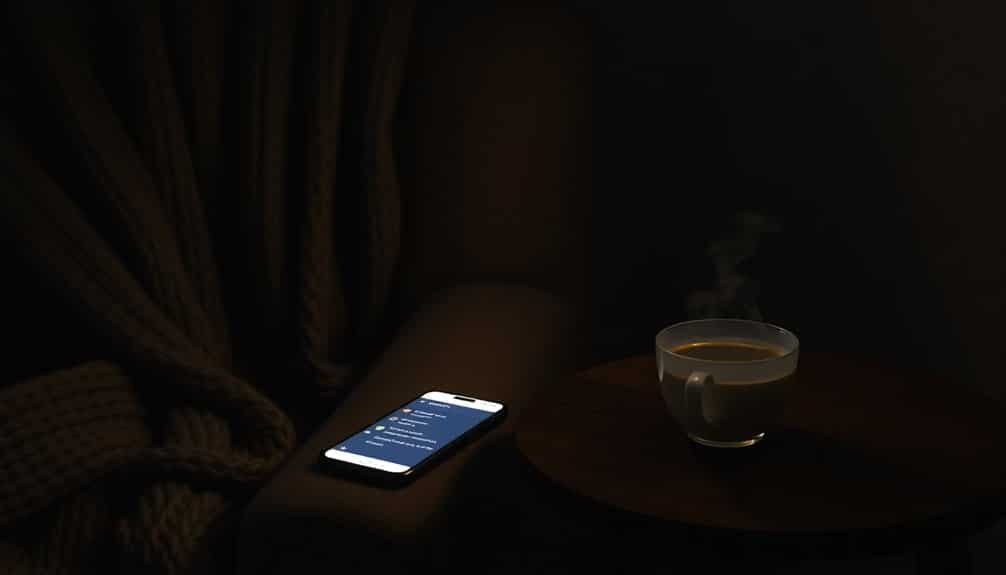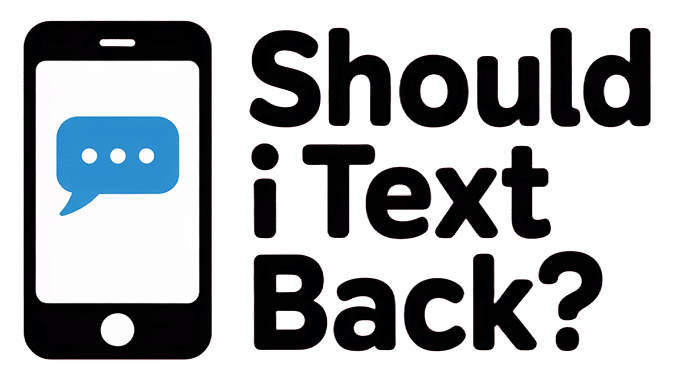When Is It Okay to Leave Someone on Read?

It’s totally okay to leave someone on read if you’re swamped with school projects, binge-watching your favorite show, or just kicking back with friends! Life can get hectic, and sometimes you need a little break. Don’t sweat it if you can’t reply right away—everyone understands! Just remember, it’s all about balance. If you want to keep those connections strong, a quick “Hey, I’m busy!” can work wonders. Stick around to pick up more tips on handling messages!
Understanding the Impact of Leaving Someone on Read

When you leave someone on read, it can feel like a mini emotional rollercoaster for both you and the other person. You might think, “Did they not care? Am I boring?” Your mind races with worries about rejection, and that’s totally normal. It’s like a tiny punch in the gut!
Plus, without those nonverbal cues we get in real life, misunderstandings can easily spiral. This digital silence can even make you feel anxious and isolated. Social exclusion triggers a stress response similar to physical pain, amplifying the emotional weight of being left on read.
To handle it better, try to manage your expectations. Remember, everyone’s busy! If you feel pressured, it’s okay to take a break and respond later. Just don’t let it fester—communication is key to keeping those connections strong!
Acceptable Scenarios for Leaving Messages Unread
Leaving messages unread can actually be a totally normal thing, especially when life gets crazy. Maybe you’re swamped with schoolwork or just trying to manage your own stress. It’s okay to hit pause on texting and focus on your mental health.
Plus, sometimes you just don’t feel like replying to every message, and that’s cool too! If a message feels low-value or you’re just not in the mood, it’s fine to leave it unread. We all need a little space sometimes.
And remember, if you’re busy with family or out having fun, it’s totally acceptable to let notifications pile up. Just don’t forget to check back later! Balance is key, so give yourself permission to breathe and respond when you’re ready.
The Role of Digital Communication Features
Digital communication features can really change how we interact, and if you’ve ever felt the pressure of a “seen” notification, you know what I mean! Those little indicators can make you feel like you have to reply ASAP, or people might think you’re ignoring them.
It’s like a game of digital tag, right? Some folks even leave messages on read just to show they’re not interested—talk about a subtle move!
Plus, different platforms have their own rules. On one app, it’s cool to leave someone hanging, while on another, it’s a total faux pas.
Psychological Effects of Being Left on Read
It’s no secret that being left on read can feel like a punch to the gut, right? Your brain reacts like it just got served a slice of rejection pie. That stress response? It’s real! You might start feeling insecure, confused, or frustrated.
You send a message, see it’s read, and suddenly your mind goes into overdrive, imagining all sorts of negative scenarios. It’s like trying to solve a mystery without clues!
But here’s the deal: remember, digital silence doesn’t always mean disinterest. People get busy! Try not to fill in the gaps with doubt.
Shift your perspective and don’t let that read receipt ruin your day. Breathe, and keep your chin up—there’s always another message to send!
Cultural and Regional Differences in Messaging Etiquette

When you’re chatting with friends or colleagues, you might notice that how people respond—or don’t respond—varies a lot depending on where they’re from.
In the U.S. or Germany, if you leave someone hanging, they might think you’re ignoring them! But in Japan or China, a little silence can mean you’re just being polite.
In Latin America, it’s all about the bonds you share; a late reply doesn’t mean you’re disinterested.
If you’re chatting with someone from Scandinavia, don’t sweat it if they don’t answer after hours; they’re all about that work-life balance!
Guidelines for Managing Message Responses
Steering through the world of messaging can feel like walking a tightrope, especially when you’re trying to figure out how to respond—or not respond—to someone.
Here are some handy guidelines to keep your messaging game strong:
- Respond quickly; 51% of folks reply within two minutes. Don’t be that person who leaves them hanging!
- Keep your messages short and sweet. Over 160 characters? Yikes! They might just get ignored.
- Use reminders wisely. A single nudge works wonders, but multiple reminders can annoy your friends.
Navigating Relationships and Communication Expectations
Steering communication in relationships can sometimes feel like trying to solve a Rubik’s cube blindfolded—you just want to get it right, but it can be tricky!
You’ve probably noticed that how you chat with your partner can really change the vibe. If you’re quick to share exciting news or lend support, that boosts satisfaction. But if you’re stuck in a cycle of negative chatter, things might get rocky.
Talk about your communication styles openly; it helps avoid misunderstandings. And remember, it’s okay to leave someone on read sometimes, but be mindful of their feelings.
Flexibility is key! So, set those expectations early and adjust as needed—your relationship will thank you for it!
Frequently Asked Questions
What Are the Long-Term Effects of Being Left on Read?
Being left on read can lead to chronic stress, feelings of invisibility, and lower self-esteem. Over time, these experiences might impair your well-being, making you feel more isolated and anxious about future interactions.
How Can I Communicate My Response Time Preferences?
To set clear response time preferences, you might contrast your availability with others. Share your usual timelines in emails or conversations, ensuring everyone knows when to expect replies. This fosters understanding and prevents frustration.
Is Leaving Someone on Read a Form of Ghosting?
Leaving someone on read isn’t necessarily ghosting; it can be a momentary pause. However, if it becomes a pattern, it may feel like ghosting, leading to confusion and insecurity. Context matters in interpretation.
How Do Different Age Groups View Being Left on Read?
Different age groups view being left on read differently. Younger people often feel anxious or offended, while older adults might not react strongly. Their texting habits and communication preferences shape these varying perceptions substantially.
What Are Common Misconceptions About Leaving Messages Unread?
Research shows 70% of people misinterpret unread messages as intentional disrespect. Many misconceptions surround leaving messages unread, including assumptions about social withdrawal, emotional impact, and varying interpretations based on relationship dynamics and individual circumstances.
Conclusion
So, leaving someone on read isn’t the end of the world, right? Sometimes life just gets in the way, like when you’re knee-deep in a snack attack or caught in a Netflix binge. But if you do it too often, it might feel like you’re playing hide and seek—only the other person can’t find you! Just remember to check in when you can. A simple “Hey, sorry for the radio silence!” can go a long way in keeping those good vibes flowing!






